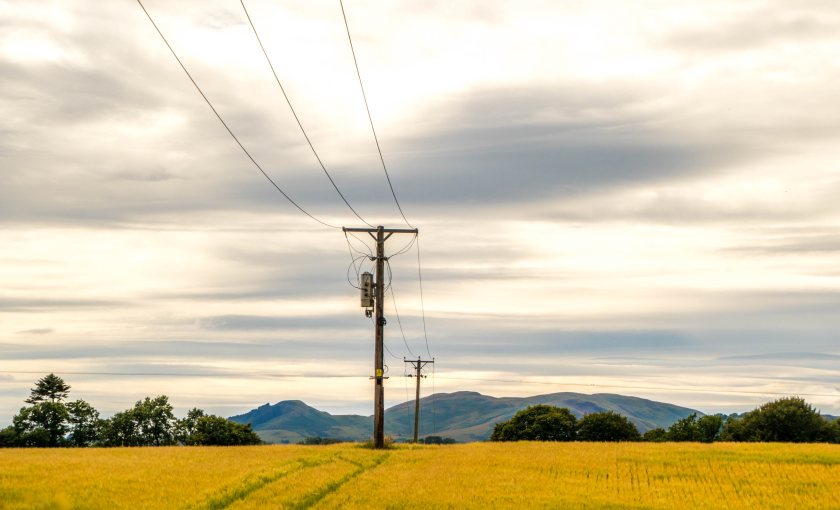
A major backlash is building across rural Scotland after more than 2,200 objections were lodged against plans for a 120-mile powerline that farmers warn would carve through productive farmland, from the Highlands to Aberdeenshire.
The now-closed public consultation received 2,246 objections to SSEN Transmission’s plans for a chain of pylons between Beauly and Peterhead — a route cutting through working farmland and key agricultural landscapes. The proposal includes towers of around 180ft, roughly twice the height of Aberdeen Airport’s air traffic control tower.
The project would involve a new 400kV overhead line linking Beauly, Blackhillock, New Deer and Peterhead, supported by three new substations and convertor stations at either end.
It forms part of SSEN’s £22 billion Pathway to 2030 programme, which also proposes an additional 350 pylons between Kintore and Tealing — a scheme that has already attracted over 10,600 objections, many from farmers concerned about losing viable farmland to industrial infrastructure.
Politicians say the scale of public opposition reflects an unmistakable message from farming communities, who fear major disruption to fields, grazing, access routes and the viability of family-run farms.
Scottish Conservative North East MSP Douglas Lumsden said the volume of objections “sends a unanimous message to the Scottish government that these plans between Beauly and Peterhead are not welcome.”
He said it is “absolutely clear that communities across the North and North East are deeply concerned that our countryside is being turned into industrial jungles,” warning that the level of overdevelopment “threatens to desecrate our countryside, causing misery and financial hardship to homeowners.”
Lumsden urged ministers to pause the scheme until “a proper energy strategy is put in place,” saying farming families deserve clarity, respect and protection from unnecessary disruption.
Tim Eagle, Buckie sheep farmer and Scottish Conservative shadow rural secretary, said the thousands of objections highlight the anger felt across the agricultural sector at what he described as a “tsunami of industrial infrastructure” being forced through rural Scotland.
He warned of the consequences for farm businesses and the land they steward, saying: “From homes being devalued and the impact on people’s health, to the loss of prime agricultural land and the monstrous blight on our landscape, these proposals must be stopped.”
He added that “food security and the protection of our farmland has never been more important during these uncertain times,” arguing that “This mass industrialisation threatens our way of life, which is why these plans should be thrown out to protect rural Scotland.”
Farmers across the proposed route say they feel overlooked, arguing that productive farmland — vital for food production, grazing and rural economies — cannot simply be sacrificed to major infrastructure without proper scrutiny or alternatives being explored.
The objections will now be assessed as the proposals move into the next stage of the planning process, with farming organisations, landowners and rural residents insisting their concerns must carry significant weight.
